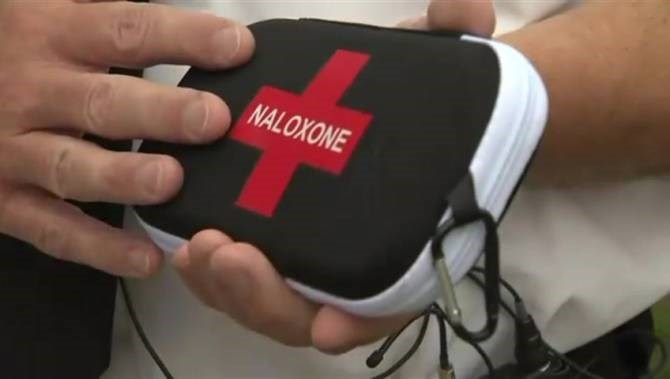Canadian pharmacists are pushing to have Naloxone kits in the home of every opioid user in Canada in a bid to reduce the number of deaths from opioid overdoses.
Vinita Arora, associate professor for doctor of pharmacy at the University of Toronto, and a part-time pharmacist at the Centre for Addiction and Mental Health (CAMH), is the co-author of a report in the Canadian Pharmacists Journal that says the rate of the opioid overdoses is a crisis. The report said action is needed to get Naloxone kits into the home of every opioid user.
Naloxone, also known as Narcan, is described by Health Canada as a fast-acting drug used to temporarily reverse the effects of opioid overdoses from such substances as heroin, morphine and codeine.
The product is free and is available to anyone who has an opioid user in their family or social group. Take-home kits include nasal spray devices or injection devices for administering the Naloxone.
"It is definitely a problem,” said Arora. “When we say opioid crisis, it really is a crisis right now. We know that last year in 2019 there were nearly 4,000 opioid-related deaths across the country."
Arora added that Ontario, British Columbia and Alberta are seeing the highest incidents of overdose deaths.
After Labour Day, the Porcupine Health Unit issued an advisory about powerful opioids circulating in the area after there were two overdose deaths in Timmins over the long weekend.
Before the long weekend, there had been 145 overdoses and 14 fatalities so far this year in the Cochrane district. In 2019, there were 141 opiate overdoses and seven fatalities. To respond to the local opioid crisis, paramedics are now carrying naloxone kits to distribute thoughout the district.
Arora added that a significant number of people at risk for overdoses are those who take prescription opioids.
"In Ontario one quarter to one third of opioid related deaths involve prescription opioids, so this is a huge problem. And a lot of people -- approximately 80 per cent of people who are assessed at Ontario emergency departments for opioid toxicity problems -- they received it by prescription basis," said Arora.
Her report said pharmacists across Ontario need to be more proactive in getting Naloxone take-home kits into every home where a family member is an opioid user.
"So we are front-line workers, and I think we have to take that opportunity to play our part in reducing all the potential risks and deaths in Ontario," said Arora. She said the guidelines encourage pharmacists and other community agencies to make it easier and more acceptable for the kits to be dispensed.
Come to the rescue
"I am hoping they will promote pharmacies and pharmacists to really become involved, to take a dive into this and realize their potential role. We can actually come to the rescue," she said.
"I think we need to start thinking of these naloxone kits almost like the rescue kit for bee stings. We know when we have patients that have an allergic reaction to a bee sting or a wasp sting it is pretty common practice to have a rescue kit at home. We would like to see the same thing happen with people who are prescribed an opioid," she said.
Arora said pharmacists are well-positioned to step up and be more proactive.
"We can screen patients. We can educate patients and we can provide the kit to prevent a lot of these opioid related deaths," she said.
She added that some patients and their families might not be taking the issue seriously enough.
"So that is a problem. Along with pharmacists being proactive to address this, a lot of it is going to be how we approach this problem. We know that people may not be comfortable asking for Naloxone kits due to stigma. They may have feelings that include shame around addiction or overuse."
Arora added that some long-term opioid users might also have a false sense of security since they have a number of months or years of experience with their medication and might not recognize there is a problem.
She said pharmacists need to take charge and speak to all opioid patients in a way that is sensitive and empathetic.
"The idea is to reduce the stigma to make it an easier conversation between them and their patients. For myself, I will say we counsel all of our patients on Naloxone. We provide it to all patients using this medication. And that kind of normalizes the dispensing of the kit for patients using opioids," Arora explained.
- With files from TimminsToday



